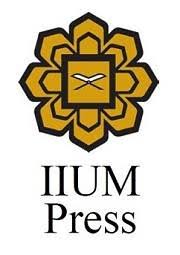Women Empowerment from Quranic perspective
DOI:
https://doi.org/10.31436/alburhn.v7i2.291Keywords:
women, empowerment, Islamic perspectiveAbstract
Despite the teachings of Islam that advocate for women's rights and empowerment, a substantial disparity persists between the ideal principles and the actual conditions in numerous Muslim communities. Women in many Muslim-majority nations encounter diverse challenges hindering their empowerment and complete societal involvement. Key factors contributing to the predicament of women's empowerment in Islam encompass patriarchal attitudes and cultural norms that confine women's roles and opportunities, as well as limited access to education and training, restricting their active participation in economic and political spheres. Present-day concerns include workplace discrimination and bias against women, encompassing unequal pay and limited advancement opportunities. Additionally, insufficient access to healthcare, education, societal engagement, and reproductive rights adversely affect women's health and well-being. Gender-based violence and harassment, encompassing domestic violence, sexual assault, and trafficking, exacerbate these challenges. Legal inadequacies in protecting and enforcing women's rights regarding marriage, divorce, inheritance, and property ownership further compound the issue. Misinterpretation and misapplication of religious teachings contribute to harmful practices such as forced marriage and female genital mutilation. Addressing these challenges necessitates targeted interventions and policy changes to dismantle significant barriers to women's empowerment in Muslim communities. The researcher employed an inductive approach, tracing research components from exegetical, hadith, and jurisprudential books to derive general rulings. Subsequently, an analytical method was utilized to categorize and discuss scientific material, yielding specific rulings about the subject. The research reached certain significant results, emphasizing the promotion of women's rights, equality, and comprehensive societal participation to foster just and equitable societies. A focus on women's rights to education, societal engagement, economic independence, fair treatment in marriage, and protection from violence and discrimination is crucial. Quranic teachings offer valuable guidance for Muslims to contribute to women's empowerment in their societies actively.
Downloads
References
Al-Qushayri Abdul Karim ibn Hawazin ibn Abdul Malik. (n.d.). 'Lata'if al-Isharat = Al-Qushayri's Commentary,' edited by Ibrahim al-Basyuni, (Cairo: General Egyptian Book Organization, 3rd edition).
Al-Hakim an-Naysaburi, Abu Abdullah Muhammad. (1411/1990). Al-Mustadrak 'ala As-Sahihain, edited by Mustafa Abdul Qadir Ata. (Beirut: Dar Al-Kutub Al-Ilmiyah – First Edition).
Abu Hayyan Muhammad bin Yusuf Al-Andalusi. (1420AH). Al-Bahr Al-Muheet fi Tafsir. edited by Sidqi Muhammad Jamil (Beirut: Dar Al-Fikr, 1st edition).
Al-‘Ayni Badr al-Din, Abu Muhammad Mahmoud al-Hanafi. (1420/2000). Al-Binayah Sharh Al-Hidaya. (Beirut: Dar Al-Kutub Al-Ilmiyya, 1st Edition).
Al-Rāzi, Fakhr Al-Din Abū Abdullāh Muhammad. (1420). Mafātīḥ al-Ghaib – Al-Tafsīr āl-Kabīr. (Beirūt: Dār Ihyā Al-Turāth Al-Arabī, 3rd Edition).
Ibn Mājah Abū Abdullah Muhammad bin Yazīd Al-Qazwīnī. (1430/2009). Sunan Ibn Mājah. edited by Muhammad Fuād Abdul-Baqī (D.M.: Dār Al-Risālah al-“aālamiyyah, Edition 1).
Ibn ‘Ashur, Muhammad al-Tahir ibn Muhammad al-Tunisi. (1984). 'Tafsir al-Tahrir wa al-Tanwir' named as 'Tahrir al-Ma'ani al-Sadiq wa Tanwir al-'Aql al-Jadid min Tafsir al-Kitab al-Majid' (Tunis: Tunisian House of Publishing).
Al-Tirmidhi, Muhammad bin Isa bin Saurah. (1395/1975). Sunan al-Tirmidhi. edited by Ahmed Mohamed Shaker (Part 1, 2), And Muhammad Fouad Abdel-Baqi (Part 3), And Ibrahim Atwa (Part 4, 5), (Egypt: Mustafa Al-Babi Al-Halabi Library and Printing Company, Second Edition).
Al-Bukhari, Muhammad bin Ismail Abu Abdullah Al-Jaafi. (1422). Al-Jami’ Al-Musnad Al-Sahih Al-Sahih, known as Sahih Al-Bukhari. edited by Muhammad Zuhair bin Nasser. (D.M: Dar Touq Al-Najat, 1st edition).
Sayyid Abul Ala Maududi. Tafhim al-Qur'an - The Meaning of the Qur'an, http://www.englishtafsir.com/Quran/4/index.html#sdfootnote29sym
Downloads
Published
How to Cite
Issue
Section
License
In general, reusing or reproducing substantial portions of al-Burhān content requires permission. This includes the use of text, figures, tables, multimedia content, and any other material published in any issues of al-Burhān Journal of Qur'an and Sunnah Studies. For some instances, al-Burhān may make its content freely viewable; however, such material may require permission for reuse. To seek permission, please contact the editorial.









